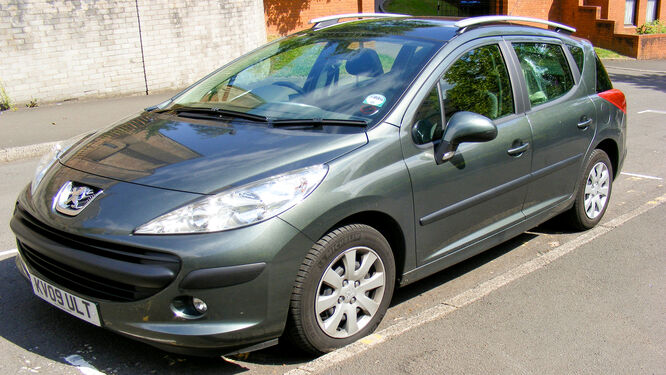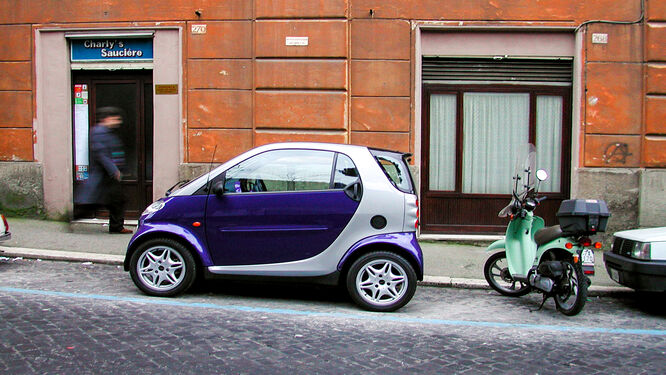Tips for Booking a Rental Car in Europe
By Rick Steves
For the best deal on long-term rentals, book in advance from home. If you decide to rent a car while in Europe, drop by or call a local car-rental agency, or book through a travel agency.
Which Rental Company?
Most of us start our search on a travel-booking site such as Kayak, Expedia, or AAA. Of course, if you have a favorite car-rental agency at home, consider using the same company in Europe.
When shopping around, don't stop at comparing initial price quotes. You'll want to determine which company's offer involves the best combination of rates (including all fees and any extras you want), service, and pickup/drop-off locations (with workable office hours) for your trip.
It's generally an advantage to go with a larger company, with a wider choice of pickup and drop-off locations. Most of the big US rental agencies have offices throughout Europe, as do the two major Europe-based agencies, Europcar and Sixt. With these companies, if you get into car trouble, a replacement car is likely to be close at hand.
It's also worth considering a consolidator, such as Auto Europe. Consolidators compare rates among various companies (including many of the big-name firms), find the best deal, and — because they're wholesalers — pass the savings on to you. You pay the consolidator, and they issue you a voucher to pick up your car in Europe. Auto Europe's European website may have better deals (and a wider selection) than the US version — check both and compare.
With a consolidator as a middleman, it's especially important to ask ahead of time about add-on fees and restrictions; otherwise you may not learn this critical information until you pick up the car. If a dispute arises when you show up at the rental desk, call the consolidator to resolve the issue before signing anything or driving off (the consolidator should provide a toll-free number that works in your rental country). The consolidator may not be able to intervene to your satisfaction, but at least you'll have someone in your corner.
No matter which company you choose, be sure to hang onto all your paperwork (including the checklist used by the company to check the car's condition when you turn it in) for a few months after the rental period, in case a billing dispute arises.
Choosing a Car
Expect some differences between your typical American rental car and what you'll likely get in Europe, where midrange cars have less passenger room, trunk space is smaller, and manual transmissions are the norm. Automatics can be more expensive and may only be available in a bigger, pricier car. (Some Americans find automatics worthwhile when driving in Great Britain and Ireland, where it can be challenging enough just to drive on the left.) Since supplies are limited, it's best to book an automatic farther in advance than a manual-transmission car. You'll find a better selection of automatics in big cities and at airports.
When checking out options for budget rentals, you'll see some familiar makes (Ford, VW, Toyota) — though not always familiar models — as well as some less familiar ones, such as Opel, Fiat, Citroën, Peugeot, Renault, Škoda, and Seat. Don't waste time carefully choosing among models, since you're not guaranteed to get the exact car you signed up for, just a "similar" model.
I normally rent the smallest, least-expensive model with a stick shift — not just to save money, but because larger cars are not as maneuverable on Europe's narrow, winding roads. If more than two adults are traveling, it can be worth it to move up to a larger class of car.
Choosing a Pick-Up (and Drop-Off) Place and Time
It's best and less stressful to begin your driving experience away from big cities, so try picking up your car away from major destinations. A pleasant scenario for a trip to England would be to start out (sans car) in the smaller city of Bath, rent a car when leaving Bath, explore Britain at your driving leisure, then drop off the car in York and take the train into London, where you can rely on the excellent public transportation system. That way you'd enjoy the three major city stops on your England itinerary without having to pay for a car.

That said, beware the possible inconveniences of picking up your car in a small town — a tiny regional office has a smaller fleet than a major airport agency. Don't plan to pick up or drop off your car in a small town on a Saturday afternoon, Sunday, or holiday, when offices are likely to be closed.
Picking up a car at an airport or city train station usually costs more than from other locations. (Airport/train-station fees apply only to your pickup, not drop off.) If you don't need a car immediately after your arrival, look into a cheaper rental with an in-town pickup price. Weigh the cost savings versus the potential inconvenience: Many in-town agencies have shorter hours (and may close at midday) or are buried in a maze of narrow streets. Before choosing a rental location, find it on a map. Some rental agencies will drop the car off at your hotel for a fee.
Cars are rented in 24-hour periods, so select your pickup and drop-off times carefully. If you pick up the car at 10 a.m. on the first day and drop it off at noon on the last day, you'll be charged a whole day's rental for just those two hours. Don't book your pickup time for earlier than you really need the car. Book a drop-off time that falls within that location's office hours (or make sure the drop-off location has an after-hours drop box).
Sometimes it can make a lot of sense to start and end your car rental in different cities. One-way rentals are often free within the same country, but dropping off in another country will likely cost extra. Expect fees ranging from $250 to more than $1,200 and fewer pick-up and drop-off locations. One-way cross-border trips are especially expensive when renting in Italy, Scandinavia, and countries in Europe's eastern end.
Depending on which borders you will be crossing, the extra cost of a one-way rental could still be worth it. But if the last leg of your trip isn't too far from the border of the country you started in, a small tweak to your itinerary can save you plenty. Let's say you're renting a car in France for a trip that ends in Barcelona, Spain. By dropping the car off within France (as close to the border as possible) and hopping a train to Barcelona (roughly $50 per person), you could save hundreds in drop-off fees. (See my regional maps showing approximate one-way train-ticket prices, most of which show prices between major cities and the nearest border.)
When booking, it may be easier to call the various companies to ask about your options (and the costs involved) in case you change your plans en route and want to drop off your car at an office in another city or on a different date.
More Tips for Renting a Car
Get quotes for weekly rentals. Typically, the longer you rent, the less it'll cost per day. You may find that renting for a full seven days costs the same as, or even less than, five or six days.
Double-check currency conversions when comparing prices. Some foreign-based rental-company sites use fudged conversion rates that make the price in dollars look cheaper than the price that'll actually show up on your credit-card bill. Convert prices yourself on a conversion site such as Oanda.
Pay up front. If your itinerary is set, it's almost always smarter to pay for a rental car when you book, rather than at the agency counter in Europe. Not only are you likely to get a discount, but, assuming that your quote was in dollars, you'll know you're paying the exact amount you were quoted. You'll also avoid paying an international transaction fee on your credit card. If you're purchasing a collision damage waiver from the rental company, that'll likely also be cheaper when paid up front. But beware cancellation fees: Don't pay if your itinerary is likely to change, and be clear on the company's cancellation policy.
Read the fine print. Carefully read your entire reservation voucher before you leave home. By asking about fees in advance and double-checking the charges at pickup, you can avoid unpleasant surprises.
Reconfirm your plans. It's a good idea to confirm your reservation a day or two in advance. When filming my public-television show in Ireland, I took a minute to call Avis in England to reconfirm my car pickup the next day at the ferry dock in North Wales. The man at Avis said, "Right-tee-o, Mr. Steves, we'll have your car waiting for you, noon tomorrow, at Heathrow Airport." No, in North Wales! "Oh, sorry, Mr. Steves. It's good you called ahead."

